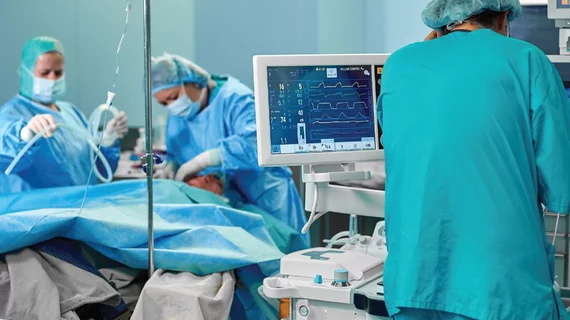COVID-19 especially harmful for heart transplant recipients
Heart transplant (HT) recipients have an increased risk of experiencing severe complications if infected with COVID-19, according to new findings published in JAMA Cardiology.
The authors tracked 28 HT recipients from a single transplant program in New York City who had a confirmed COVID-19 diagnosis. The median patient age was 64 years old, 79% of HT recipients were men and the median time from HIT to COVID-19 diagnosis was approximately eight and a half years. The study’s authors gathered all data from March 1 to April 24, 2020.
Studying the recipients as a group, the researchers noted that hypertension (71%), diabetes (61%) and cardiac allograft vasculopathy (57%) were all common comorbid conditions. The case fatality rate was 25%.
While 79% of the HT recipients were admitted for treatment due to COVID-19, and 25% needed mechanical ventilation. Of the 17 patients who were admitted to the hospital and underwent a full variety of laboratory tests, evidence of myocardial injury was present in 77%. In addition, high-sensitivity C-reactive protein levels were higher in 100% of patients.
Also, seven HT recipients underwent an echocardiogram while hospitalized. The results were unchanged compared to their most recent echocardiogram for five patients, improved in one patient and worse in one patient.
Although our cohort is small, we recommend that patients who have received HT are treated at a transplant center while infected with COVID-19,” wrote lead author Farhana Latif, MD, Columbia University’s Vagelos College of Physicians and Surgeons, and colleagues. “Furthermore, these patients will require ongoing monitoring in the recovery phase as an immunosuppression regimen is reintroduced and the consequences to the allograft itself become apparent. The high case fatality rate in this cohort calls for close monitoring of recipients of HT and a low threshold for hospitalization during acute infection with COVID-19.”
Latif et al. did note that asymptomatic patients were not routinely tested, meaning they “may have underestimated the prevalence of COVID-19 infection in this transplant population.”
“Furthermore, we were unable to address whether cardiovascular risk factors, immunosuppression, or HT status itself increased the risk of mortality among this population,” they wrote.

